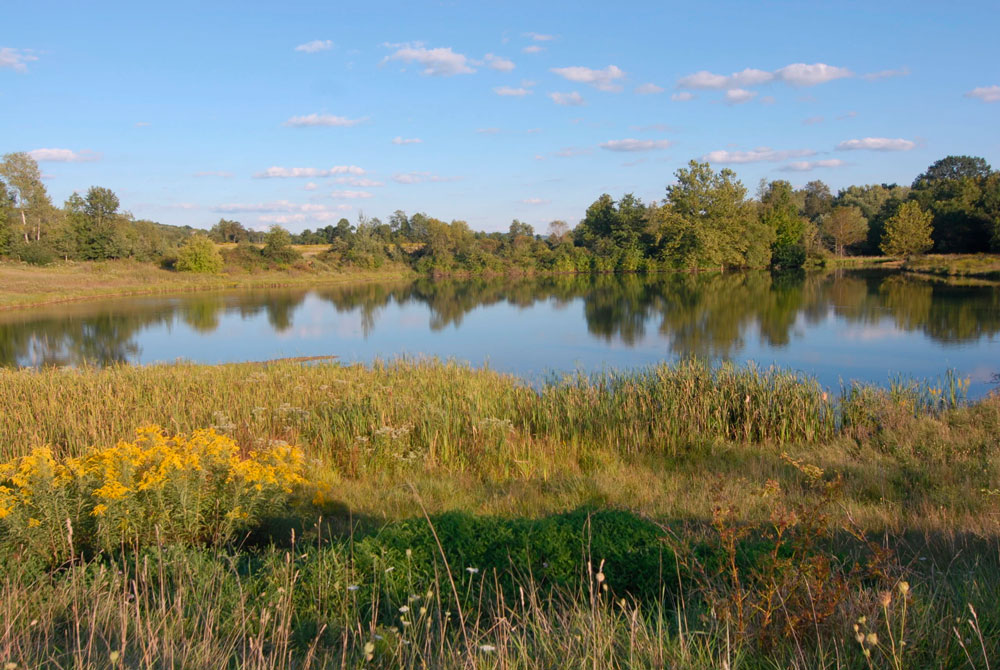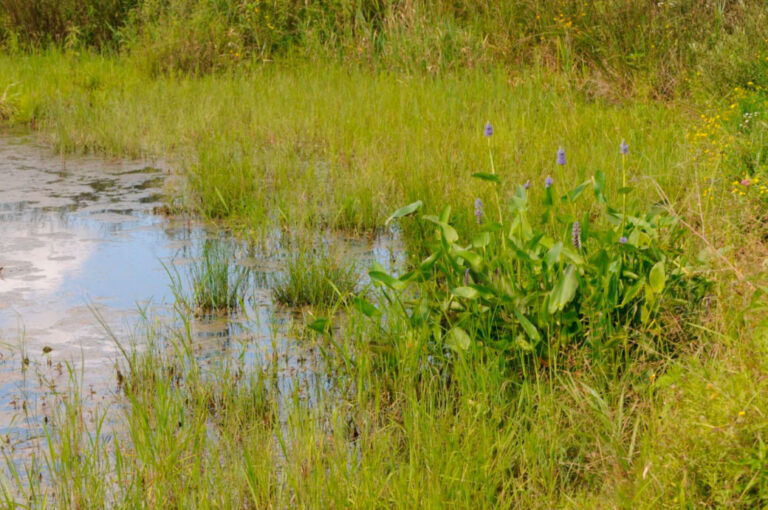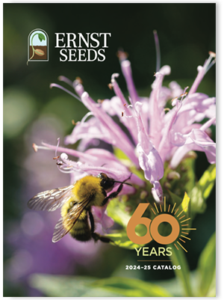Regrettably, wetlands have often been viewed as undesirable wastelands to be avoided or destroyed. Today less than half of America’s original wetlands remain.
The recent devastation left behind by Hurricane Ida is a grim reminder of what we have lost with them.
Wetland losses have slowed in recent years thanks to our better understanding of their value. But much work remains to protect these valuable landscapes. Ernst Seeds is committed to being part of the solution with carefully designed native seed mixes. These mixes have an essential role in restoring and creating healthy, resilient wetlands.

Wetlands Help Protect Our Communities and Sustain Our Environment
Wetlands provide important ecosystem processes that help keep our communities safe and healthy. Wetlands form natural buffers that blunt the impact of storms. They help dissipate the energy of storm surges and absorb the floodwaters that can cause costly property damage and tragic loss of life.
Wetlands also have a remarkable capacity to capture, clean and store water. This includes domestic sewage and harmful runoff coming from agricultural fields and impervious surfaces like roads and parking lots. Contaminated water entering a wetland will slow down and spread out as it flows through wetland vegetation. This gives suspended particulates time to settle out. Wetland plants, soils and microorganisms bind or metabolize these into less harmful forms.
Clean water then slowly releases back into the groundwater reservoirs and surface waters like rivers and lakes. This helps protect downstream communities from erosion and disastrous flooding and helps make sure water is available even in times of drought.
Wetlands are also an essential habitat for fish, amphibians, and other wildlife, including many threatened and endangered species. Indeed, wetlands are one of the most productive ecosystems on earth, supporting an abundance of plants and other primary producers. This, in turn, attracts and sustains biodiverse wildlife. Many species make their home in wetlands for all or part of their lives. This includes bees and other important pollinators who depend on the flowers and host plants that wetlands provide.

Harnessing the Power of Wetlands To Treat Water Naturally…and Beautifully
There is no true substitute for conserving and protecting the natural wetlands we still have. But creating new wetlands and restoring degraded ones can help reestablish valuable wildlife habitat and ecological function. What’s more, wetlands can be purpose-built to treat wastewater, stormwater, agricultural runoff, mine tailings and other contaminated source waters. Constructed wetlands can work together with water treatment plants and residential septic tanks. Or they can also form the entire treatment train from raw inputs to end-of-pipe clean flows. Both approaches can be effective, low-cost alternatives to conventional engineering solutions.
Taking a more natural approach to water treatment also creates beautiful landscapes. Likewise the potential for outdoor recreation. These are benefits that conventional water treatment simply cannot deliver. The groundwork for this begins with careful plant selection.

Using Native Seed Mixes in Constructed Wetlands
The plants used in constructed treatment wetlands must handle the hydrology and pollutant loads of the system. These performance goals can – and should – occur within landscapes that are also self-sustaining. And it makes sense to create wetlands that provide wildlife habitat and natural beauty while they also do the work of improving water quality.
To achieve this, project planners should (as always) aim for diverse, resilient native plant communities. Selected species must be well adapted to local climates and soils. Established plantings must also hold their own against the threat of invasive exotic plants and other weedy species. Ernst Seed wetland and wet meadow mixes deliver all this with the right mix of local ecotypes that accommodate appropriate hydrological regimes from open water to transitional upland zones.
We all share the responsibility to protect and expand our valuable wetland systems. Ernst Seed native wetland seeds mixes are part of the solution.


